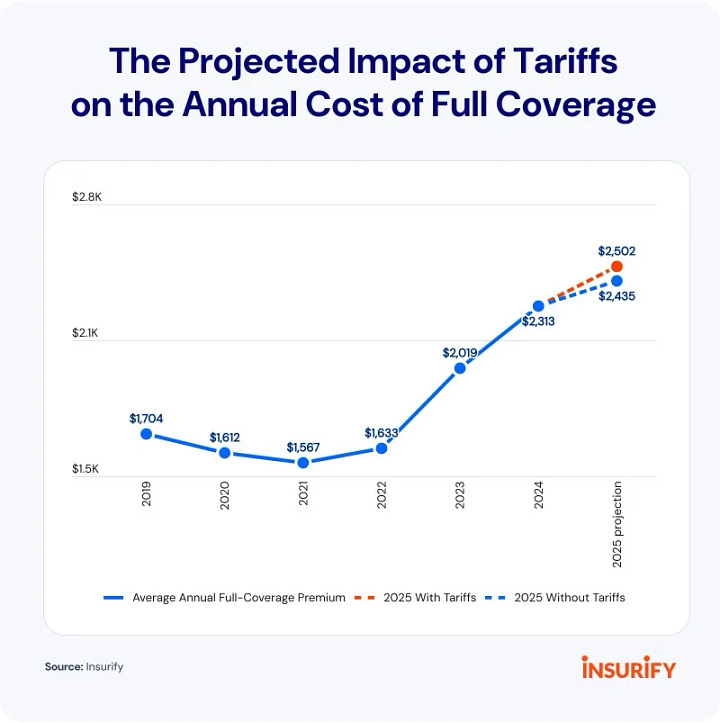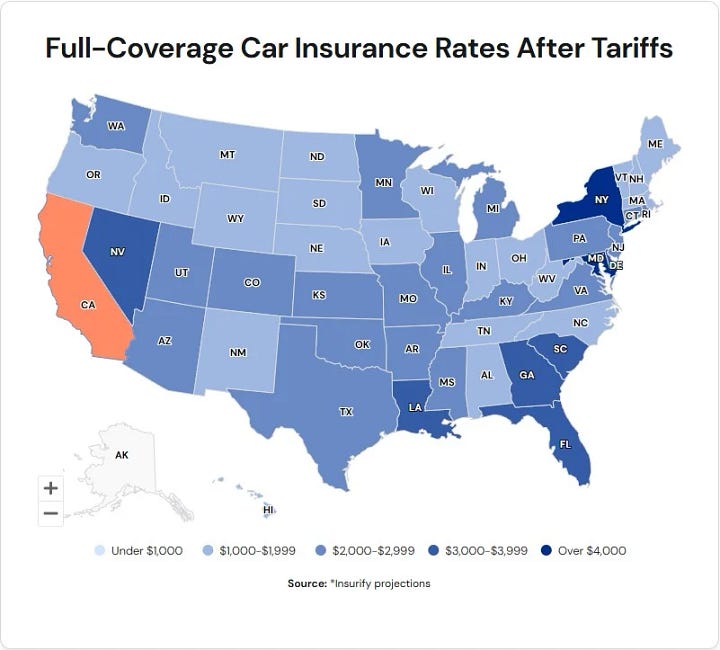Quality Check
How auto tariffs affect everyday Americans.
Route 24 is your civic education stop for stories driving public trust.
Driver’s Ed parks in your inbox on Mondays to shift your gears on key policy debates and test drive people-powered solutions.
Here’s what a Route 24 subscription gives you:
A safe zone to explore your blindspots.
Immersive stories that test drive people-powered solutions.
Interdisciplinary insights that shift your gears on key policy debates.
An innovative vehicle to accelerate pathways for community restoration.
Our latest stops include:
Paid subscriptions to Route 24 help us to reach our Q1 fundraising goal, which supports building the creative team and a playable prototype for Probable Cause, our civic education gaming experience that puts you in the driver’s seat during a routine traffic stop. It also helps to keep this newsletter accessible to all of our riders.
We welcome one-time contributions or monthly subscriptions to help us sustain and advance this project. We also welcome cross-posts and restacks to help us reach new riders.
However you may contribute, thank you for joining us on this road!
Want to read more from Route 24? Join us on Notes and Bluesky.
In this issue: Back in 2024, I wrote about the countless misdirections in Project 2025’s Transportation section. Since then, I wrote about how tariffs work and why a 25% tariff in practice disrupts supply chains. With such tariffs slated to go into effect beginning tomorrow (March 4), the Trump administration will upend $300 billion in annual U.S. automotive trade.
Here’s what this means for everyday Americans.
The Auto Tariff Debate — Get Up to Speed
The Trump administration wants to impose tariffs on auto imports, suggesting it will curb border crossings and fentanyl distribution. There is no evidence to support this claim. In fact, a report from InsightCrime suggests tariffs would enable the exact opposite.
Experts in the auto industry — from economists to insurance representatives and UAW workers — warn tariffs on auto imports will result in higher vehicle and insurance premium prices, increased worker exploitation, and manufacturing plant closures. There is significant evidence to support these claims. According to the Detroit Free Press, new car prices could increase more than $9,000 per vehicle, signaling a worse cumulative impact on the U.S. auto industry under the Trump administration’s tariffs than a UAW strike.
Commuters across the country depend on affordable car insurance premiums. According to a report from Insurify on the proposed tariffs, as the cost for spare parts increases, the cost of insurance premiums increases as well. That’s because insurance companies factor in repair costs when calculating premium rates. Without tariffs, the annual cost of full coverage car insurance is $2,435. Under the proposed tariffs, the cost increases to $2,502. At the state level, Delaware, Florida, Georgia, Nevada, and New York would see the most significant price increases under such tariffs.


Tariffs won’t fix border crossings. Tariffs won’t fix fentanyl trafficking. Tariffs won’t get prices down for everyday Americans. Tariffs won’t “fix it”.
Boosting U.S. auto manufacturing will fix it. Ceasing plant closures will fix it. Restoring the National Labor Relations Board will fix it. Investing in the wellbeing of everyday Americans will fix it.
Stay the course,
Sam







